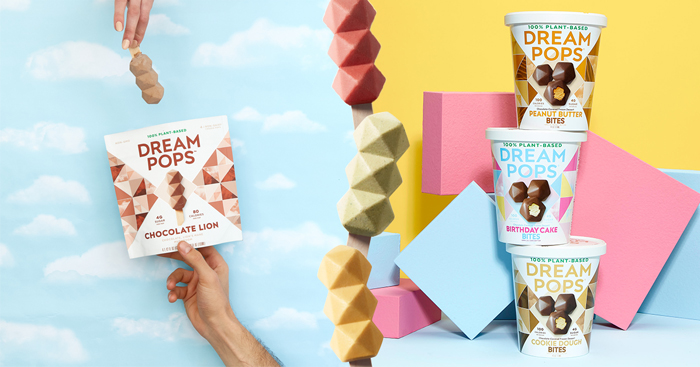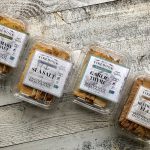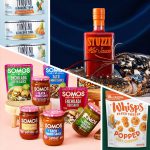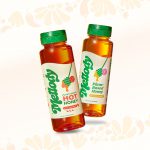Dream Pops Raises $6M, Plans for Expansion Beyond Frozen

Frozen novelty brand Dream Pops has raised $6 million as it seeks to move beyond its current portfolio and expand into the confection aisle.
The round was led by Melitas Ventures with other investors in the round including NFL quarterback Cam Newton, Fanatics CEO Michael Rubin, Maveron co-founding partner Dan Levitan, Lokai founder and CEO Steven Izen, the family office of Will Roush, Manitoba Harvest founder Mike Fata, MVMT founder Jake Kassan, actor Diego Boneta, Behance founder Scott Belsky, Chetrit Ventures, Catch Hospitality Group partner Mark Birnbaum, Zero Bond founder Will Makris and entrepreneur Eric Emanuel.
Dream Pops founder and CEO David Greenfeld said the company has raised smaller amounts of capital from angel investors since its founding in 2016, but the latest round is the largest amount to-date and includes the company’s first institutional investors.
“I was really eager to bring a multifaceted group of investors, entrepreneurs and funds,” Greenfeld said. “Not only did we want strategic [investors] that can add value in scaling CPG and soon direct-to-consumer businesses, but also people that have actually operated companies before and can help us really fine tune this machine that we’re building.”
The round will allow the brand to not only expand distribution of its plant-based popsicles and frozen bites but also move into new aisles of the store. Greenfeld said Dream Pops plans to enter the confection aisle in the first quarter of 2022. The ultimate goal is to launch plant-based versions of “American cult classics” with indulgent offerings across candy, chocolate and frozen, he added, in the spirit of large CPG companies such as Mars.
In addition to using a base of coconut milk, Dream Pops’ current portfolio also is lower calorie and eschews using the typical sweeteners of corn syrup and cane sugar for coconut sugar. As the brand expands into new parts of the store, Greenfeld expects to maintain similar nutrition profiles. The emphasis on better-for-you ingredient decks has been solidified over the past year, he said, as Greenfeld said its bites “took us to that next level” with consumers gravitating towards a low calorie, portion-controlled dessert.
The company first launched as a direct-to-consumer only product line, before expanding into natural and specialty stores in 2020 and building the “base of the business” over the last two years, Greenfeld said. Dream Pop’s frozen items are now in 3500 stores including Wegmans, HEB, Gelson’s, Erewhon, Fairway Market, Harris Teeter, and Earth Fare, as well as being listed on last mile delivery services such as Fridge No More, Uber Eats, GrubHub, Postmates and DoorDash in major markets. The company has also expanded to 1,000 Canadian grocers.
Dream Pops was able to achieve this growth because of its investment into marketing, Greenfeld said. He sees the brand not just as a product but also a “content company,” with a newsletter, heavy presence on social media, and a podcast. The company also has branded coolers in Six Flags theme parks and often partners with aspirational brands such as Soho House on co-branded lines.
“I genuinely believe that the reach we’ve gotten organically through platforms like Tik Tok and LinkedIn have allowed us to manifest huge wins and convert with customers in those stores,” he said.
In an interesting twist for a company that once depended on e-commerce, Dream Pops is in the process of shutting down its online store. Greenfield says the storefront will reopen in 2022 once the brand has launched confection items that don’t require cold chain shipping. In brick and mortar retail, next year the company will focus on expanding into mass and conventional retailers — a move it’s held off on to-date until it had better unit economics, Greenfeld said.
Perfect that pricing has taken time, in part, because Dream Pops self produces its products, with patented custom molds. The company also uses liquid nitrogen to freeze its products rather than the typical method of blast freezing. SKU rationalization has also played a role, Greenfeld said, with Dream Pops cutting down its portfolio to only five flavors of each product line.
Dream Pops has not just been focused on its margins though, Greenfeld also wanted to get prices in line with other novelties. Its packs and cups of bites are now $4.99 each versus the original price tag of $45 for 10 pops. This change was necessary in order for the line to work across retail channels, appealing to a wider breadth of shoppers.
“This is a product that is for everyone — we want this to be in every American household,” Greenfeld said. “It took us time to scale and to figure out product market fit and that’s with a $4.99 product for everybody.”












